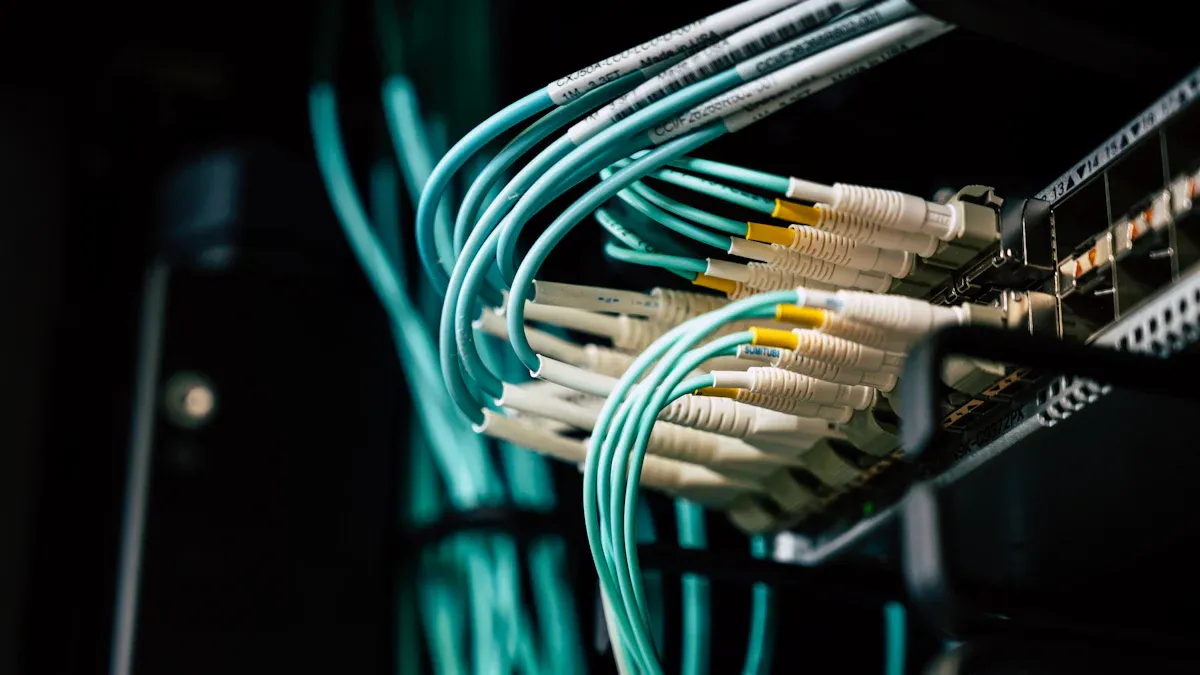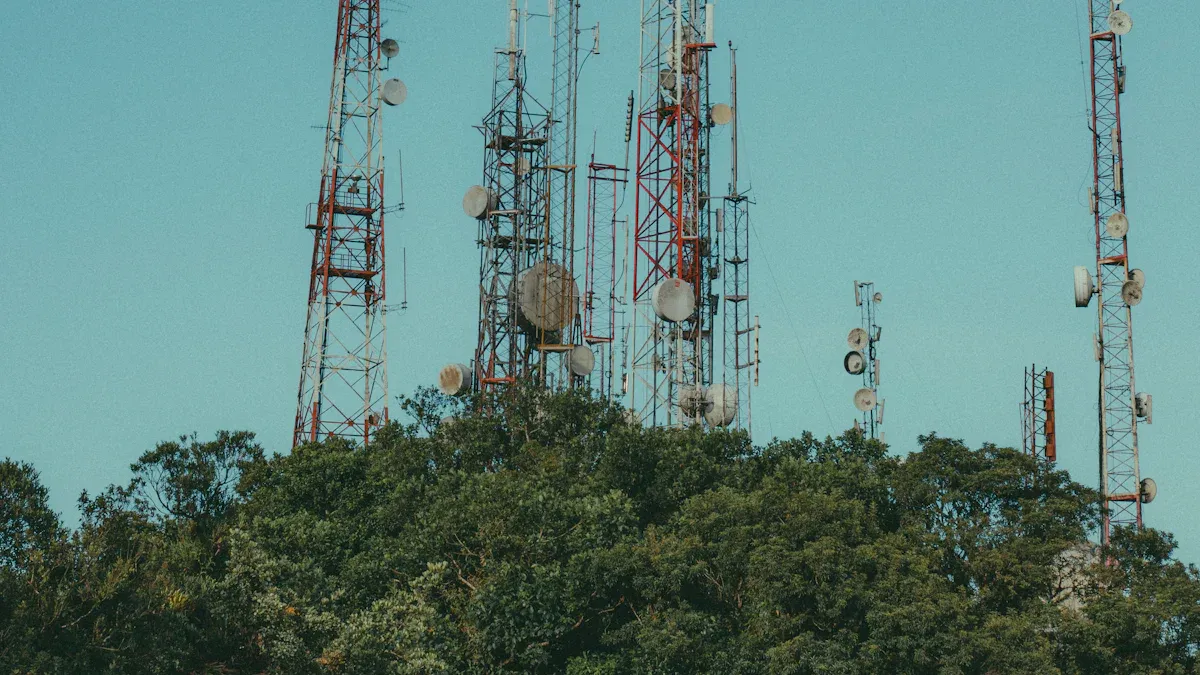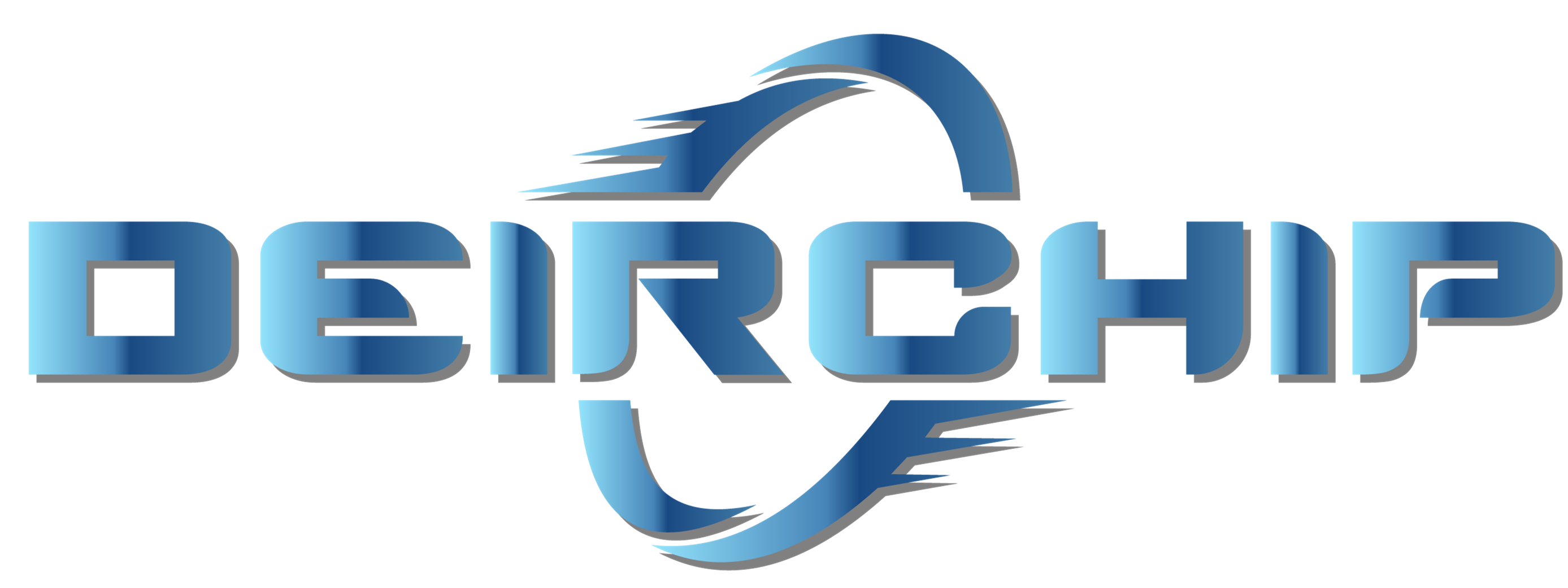SP3485EN-L/TR helps build reliable communication systems easily

Efficient communication is key for any industrial system to work, and the SP3485EN-L/TR helps build a highly reliable industrial serial communication system easily. It simplifies the process and keeps data flowing smoothly. Its smart design allows data speeds up to 120kbps, meaning it works fast in tough environments. You can link up to 256 devices on one bus, facilitating easy communication in big, complex networks. The SP3485EN-L/TR transceiver improves reliability and efficiency, making it a must-have for modern industrial uses.
Key Takeaways
The SP3485EN-L/TR transceiver sends data quickly, up to 10 Mbps.
It links 256 devices on one bus, great for big networks.
The device works in harsh temperatures from -40°C to +85°C.
Twisted pair cables and resistors lower interference and improve signals.
The SP3485EN-L/TR uses only 800 µA, saving energy and money.
Overview of SP3485EN-L/TR transceivers

Key features of SP3485EN-L/TR
The SP3485EN-L/TR transceiver is special for its strong design. It works with RS-422 and RS-485, making it fit many systems. It can handle fast data speeds up to 10 Mbps. The device is also protected from static electricity with a 2 kV rating. This makes it tough for hard environments.
Here’s a closer look at its specs:
Specification | Value |
|---|---|
Product Category | RS-422/RS-485 Interface IC |
Function | Transceiver |
Number of Drivers | 1 Driver |
Number of Receivers | 1 Receiver |
Data Rate | 10 Mb/s |
Supply Voltage - Max | 3.465 V |
Supply Voltage - Min | 3.135 V |
Minimum Operating Temperature | -40°C |
Maximum Operating Temperature | +85°C |
ESD Protection | 2 kV |
Input Voltage | -7 V to 12 V |
Operating Supply Current | 800 µA |
Output Current | 250 mA |
Output Type | Differential |
Output Voltage | 1.5 V to 3.3 V |
Pd - Power Dissipation | 600 mW |
Propagation Delay Time | 17 ns, 35 ns |
Protocol Supported | RS-422, RS-485 |
Shutdown | No Shutdown |
Unit Weight | 0.005044 oz |
These features make the SP3485EN-L/TR a great pick for industrial systems.
Benefits for industrial applications
The SP3485EN-L/TR helps create reliable communication systems by solving common problems. It keeps signals clear, even with lots of interference. Its wide temperature range (-40°C to +85°C) works well in tough places. The device uses little power (800 µA), saving energy and money over time.
Adding this transceiver improves how your system works. Its strong build ensures it performs well, even in hard conditions.
Scalability and flexibility in industrial systems
The SP3485EN-L/TR is very flexible and can grow with your needs. It connects up to 256 devices on one bus, perfect for big networks. It works with RS-422 and RS-485, so it fits into old or new systems. Its small size and light weight (0.005044 oz) make it easy to use without taking up space.
Whether you’re starting fresh or upgrading, the SP3485EN-L/TR helps create a reliable communication system. Its ability to grow makes it ready for future needs.
Common challenges in industrial serial communication
Noise and electromagnetic interference (EMI)
Noise and electromagnetic interference (EMI) can mess up communication in factories. There are two types of EMI: natural and man-made. Natural EMI comes from things like lightning or space signals. Man-made EMI comes from radios, TVs, cars, power lines, or appliances.
Engineers test for EMI early to find problems. These tests check for unwanted electromagnetic signals. Fixing issues early helps systems pass official tests later. This ensures the system works well in noisy places.
Signal integrity and data transmission issues
Weak signals can hurt data transmission in industrial systems. Problems like bad materials or design flaws can cause signal loss. These issues make communication unclear and may lead to missing data.
Engineers use tools to measure and fix signal problems. For example, shorter cables can reduce signal loss. A study showed shorter cables had better signal strength. Knowing this helps design systems with strong signals.
Environmental factors and their impact on communication
Factories often have extreme conditions that affect communication systems. Heat, moisture, and dust can harm parts and block data flow. For instance, heat can overheat circuits, and moisture can cause short circuits.
To handle these problems, use parts made for tough conditions. Devices like the SP3485EN-L/TR work well in hot or cold places (-40°C to +85°C). Protective covers and coatings can also keep systems safe. This ensures communication stays reliable.
Tips for improving systems with SP3485EN-L/TR
Using twisted pair cables to lower EMI
Electromagnetic interference (EMI) can mess up communication in factories. Twisted pair cables help reduce this problem. These cables are made to shrink the loop area, cutting down on interference. The twisted wires also block noise better, making them great for tough places.
Shorter twists in the cables make them reject noise even more. Tests show twisted pair cables lower noise much better than other cables. The table below shows important details:
Aspect | Description |
|---|---|
Twisted Pair Design | Shrinks loop area to cut down interference. |
Twist Length Impact | Shorter twists block noise more effectively. |
Experimental Verification | Tests prove how well they handle EMI. |
Using twisted pair cables gives your system better noise protection and steady communication.
Adding proper termination resistors
Termination resistors are key to keeping signals clear in systems. Without them, signals can bounce back, causing errors and unstable communication. You can stop this by using the right resistors.
Here’s what to do:
Use 120Ω resistors to match the line's impedance.
Put resistors at both ends of the line to stop reflections.
Attach resistors in parallel with data lines for proper matching.
Fast communication and long distances can cause more signal problems. Correct termination keeps things stable and reduces mistakes, especially in systems needing accurate data, like factory automation.
Using external fail-safe biasing
Fail-safe biasing keeps your system steady when the bus is idle or disconnected. Without it, noise might be read as real data, causing errors. Adding resistors can set the bus to a safe state, stopping false signals.
To use fail-safe biasing:
Add pull-up and pull-down resistors to set a safe voltage.
Pick resistor values based on your system's needs.
Make sure resistors don’t mess with termination or system impedance.
Fail-safe biasing makes your system more reliable, especially in noisy areas or when not in use.
Ensuring proper grounding and shielding
Good grounding and shielding are very important for reliable systems. Without them, electromagnetic interference (EMI) can cause errors and bad signals. You can stop these problems by using proper grounding and shielding methods.
Grounding sends extra electricity safely into the ground. This protects your system from sudden voltage spikes. Shielding blocks outside noise from affecting your cables. Together, they protect your system from EMI. For example, shielding cuts noise from electric fields. This improves system performance and saves money by avoiding future problems.
Bad installations can cause random issues and wrong measurements. Proper grounding and shielding reduce noise problems a lot. This is very important in factories where good data is needed. Shielding also stops signal interference, making systems work better. How well shielding works depends on cable quality, shield ends, and ground connection impedance. Focusing on these details keeps your system running well.
To do grounding and shielding right:
Use good shielded cables with strong connections.
Make sure the ground connection has low impedance to cut noise.
Check and fix your grounding and shielding often.
By doing these steps, your system will be more stable and reliable.
Configuring baud rates and data formats effectively
Setting baud rates and data formats correctly helps your system work better. Baud rate is how fast data moves. Data format is how the data is arranged. Both are important for smooth communication.
Pick the right baud rate based on your system's needs. Faster baud rates send data quickly but may cause errors over long distances. Slower baud rates are better in noisy places because they are more reliable. For example, in factories with lots of EMI, slower baud rates keep data safe.
Data format includes things like data bits, parity, and stop bits. All devices must use the same settings to avoid errors. For instance, if one device uses 8 data bits and no parity, but another uses 7 data bits and even parity, they won’t work together.
To set baud rates and data formats:
Look at your system’s needs and environment.
Choose a baud rate that balances speed and reliability.
Make sure all devices have the same data format.
Test the setup to find and fix any problems.
By setting these correctly, your system will work faster and more reliably.
Real-world uses of SP3485EN-L/TR
Boosting factory automation systems
The SP3485EN-L/TR transceiver makes factory systems work better. It handles data speeds up to 10 Mbps, ensuring fast and clear communication. This speed is important for controlling and monitoring machines in real-time. Its strong ESD protection of ±15kV keeps systems safe from electrical shocks, even in places with heavy machinery.
This transceiver connects up to 256 devices on one bus. You can link sensors, controllers, and actuators in one network. This reduces extra hardware and makes system design easier. The table below shows why this transceiver is great for factory automation:
Feature | Specification |
|---|---|
Data Speed | Up to 10 Mbps |
ESD Protection | ±15kV |
Power Supply Range | 3.0V to 3.6V |
Devices on Bus | Up to 256 devices |
Uses | Factories, telecom, networking, etc. |
Using the SP3485EN-L/TR improves factory systems, making them faster and more reliable.
Uses in energy and power systems
The SP3485EN-L/TR is helpful in energy and power systems. It works well in extreme temperatures (-40°C to +85°C), making it great for outdoor setups like power stations. It connects devices like smart meters and transformers, helping them share data and monitor systems.
This transceiver uses very little power (800 µA), saving energy while keeping fast communication. This is useful in remote areas with limited power. It also works with RS-485 and RS-422 protocols, fitting into old systems without needing big changes.
Adding the SP3485EN-L/TR helps manage energy better, monitor systems, and make power networks more reliable.
Better communication in transport and logistics
Transport and logistics need strong communication to run smoothly. The SP3485EN-L/TR builds reliable systems for sharing data between vehicles, warehouses, and control centers. Its design keeps signals strong over long distances, perfect for big networks.
You can use it to connect GPS devices, RFID readers, and trackers. It supports up to 256 devices on one bus, cutting setup costs and simplifying networks. Its tough build and wide temperature range make it ideal for vehicles and outdoor use.
With the SP3485EN-L/TR, transport systems become more efficient, with fewer errors and better performance.
Role in building automation and smart systems
The SP3485EN-L/TR transceiver is important for modern smart systems. These systems need good communication to make buildings comfortable, energy-saving, and safe. Adding this transceiver improves how well your smart systems work.
Why SP3485EN-L/TR is ideal for building automation
The SP3485EN-L/TR has features that make it great for automation:
Wide Temperature Range: It works from -40°C to +85°C. This means it performs well in both hot and cold places.
High Data Rates: It sends data quickly at speeds up to 10 Mbps. This helps devices like sensors and controllers share information fast.
Low Power Consumption: It uses only 800 µA, saving energy for smart systems.
Compatibility: It works with RS-485 and RS-422, fitting into old and new systems easily.
These features make your automation system efficient and flexible.
Applications in smart systems
The SP3485EN-L/TR improves many parts of smart systems. Here are some examples:
Lighting Control
Smart lights adjust brightness based on people or sunlight. The SP3485EN-L/TR helps devices talk to each other for quick changes and energy savings.HVAC Systems
Heating and cooling systems need accurate control for comfort. This transceiver ensures sensors and controllers share data reliably.Security Systems
Security systems use cameras and alarms to protect buildings. The SP3485EN-L/TR keeps communication fast and stable, so alerts work without delay.Energy Management
Smart meters track energy use to save power. The SP3485EN-L/TR connects many devices for accurate data collection.
Tip: Plan for future growth when designing smart systems. The SP3485EN-L/TR connects up to 256 devices, making it great for expanding networks.
Benefits for building automation
The SP3485EN-L/TR offers many benefits for automation:
Feature | Benefit |
|---|---|
Robust Design | Works well in tough conditions, lasting a long time. |
High Noise Immunity | Keeps communication clear, even with interference. |
Energy Efficiency | Uses less power, cutting costs. |
Scalability | Handles big networks, perfect for complex systems. |
Using the SP3485EN-L/TR in your projects helps create smart systems that are reliable and ready for the future.
The SP3485EN-L/TR makes industrial communication systems more reliable. It solves problems like noise, weak signals, and tough environments. With fast data speeds and strong ESD protection, it works well in hard conditions. It can handle both small and large networks easily. Whether you’re fixing old systems or building new ones, this transceiver helps improve communication and efficiency.
FAQ
Why is the SP3485EN-L/TR good for tough environments?
The SP3485EN-L/TR works in very hot or cold places (-40°C to +85°C). It also blocks electromagnetic interference, making it strong for factories, power setups, and outdoor use.
How does the SP3485EN-L/TR make communication better?
This device reduces noise and keeps signals clear. It uses differential signaling and ESD protection to stop signal loss. Features like grounding, shielding, and fail-safe biasing help it work well in noisy areas.
Can older systems use the SP3485EN-L/TR?
Yes, the SP3485EN-L/TR works with RS-422 and RS-485 protocols. It fits into old systems and new ones without needing big changes.
How many devices can connect to one SP3485EN-L/TR?
You can link up to 256 devices on one bus. This makes networks easier to design and lowers hardware costs for big systems.
Does the SP3485EN-L/TR save power?
Yes, it uses only 800 µA of current, saving energy. This low power use cuts costs and works well in places with limited power.
Tip: Choose the SP3485EN-L/TR for energy-saving and reliable industrial systems.
See Also
Choosing The Right RS-232 Transceiver For Best Results
Why The SN65LBC184DR Is Crucial For Remote Applications
The TPS56221DQPR: A Key Power Source For Telecom

